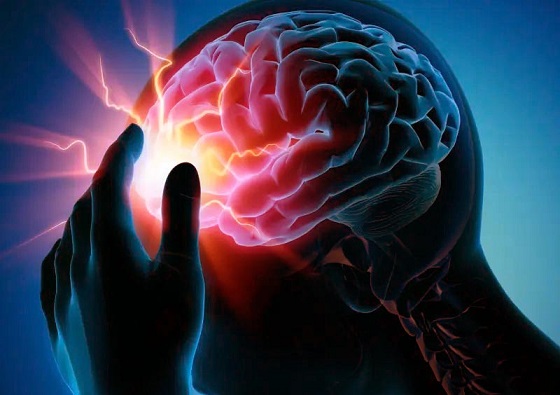Nikhil Prasad Fact checked by:Thailand Medical News Team Oct 14, 2025 4 months, 3 weeks, 37 minutes ago
Medical News: Thailand Medical News has uncovered four often overlooked warning signs that may appear before a stroke. In this
Medical News report, we highlight that these “silent” cues merit attention — especially if they come on suddenly.
 Subtle Signs You Could Be in Danger Ahead of a Stroke
Faint signals you should not ignore
Subtle Signs You Could Be in Danger Ahead of a Stroke
Faint signals you should not ignore
A stroke’s dramatic symptoms, such as slurred speech or sudden paralysis, are well known. These symptoms materialize when one is already in the process of a stroke. But researchers caution that warning signs may begin quietly days earlier, when intervention can make a difference. We examined records and symptom patterns in a large group of patients — comparing those who later experienced a stroke with those who did not. We looked closely at early complaints, timing, and which signals reliably predicted trouble ahead. We identified four invisible signs that often precede a stroke, even though they are commonly dismissed or misattributed. These signs appeared in a meaningful proportion of patients who later suffered strokes — making them worth watching.
The four warning signs explained
-Unrelenting headache or head pressure
Some patients reported an intense headache or a growing sense of pressure in the head shortly before a stroke. This was not ordinary pain, but one that would not ease with rest or common remedies.
-Persistent nausea or a sick feeling
Occasional nausea is common and usually harmless. But in those who later had strokes, a faint but constant sense of nausea showed up, sometimes accompanied by lightheadedness or general malaise juts days before a stroke.
-Unexplained Visons Problems
Sudden blurriness, one eye seeing letters from a page or on the computer in a different shade and other strange vision manifestations are warning signs of an impending stroke.
-Unusual hiccups or throat discomfort
Though surprising, persistent hiccups or odd sensations in the throat or vocal cords were more frequent in people before a stroke event. These symptoms do not typically draw attention, but in our analysis, they emerged with greater frequency in the pre-stroke group.
Altogether these four signs were more common in people who went on to have a stroke — especially when two or all three appeared within days of each other. We stress that having one of these symptoms doesn’t guarantee a stroke will happen, but taken together they may signal a dangerous shift.
Why these findings matter
Many strokes could be less severe or prevented entirely if subtle warning signs are spotted early. By shining light on these faint signals, this study invites both patients and clinicians to take early symptoms seriously — particularly in people already at risk for cardiovascular problems, high blood p
ressure, or previous mini-stroke episodes.
Conclusion
Recognizing seemingly mild and vague symptoms like persistent headache, nausea, or hiccups or vision issues days beforehand could unlock earlier treatment and save brain function before a full stroke strikes — vigilance matters.
References:
https://www.scirp.org/journal/paperinformation?paperid=134020
https://www.internationaljournalofcaringsciences.org/docs/43.aysegul.pdf
https://www.frontiersin.org/journals/public-health/articles/10.3389/fpubh.2023.1131110/full
https://journals.stikim.ac.id/index.php/jiiki/article/view/3165
https://www.nm.org/conditions-and-care-areas/neurosciences/comprehensive-stroke-centers/before-stroke/warning-signs
https://consensus.app/questions/early-warning-signs-stroke/
For the latest on strokes, keep on logging to Thailand
Medical News
Read Also:
https://www.thailandmedical.news/news/long-covid-linked-to-alarming-stroke-symptoms-in-er-patients
https://www.thailandmedical.news/news/phytochemical-from-chinese-herb-shows-potential-in-stroke-treatment-through-estrogen-receptor-pathway
https://www.thailandmedical.news/news/lactate-may-hold-the-key-to-preventing-brain-cell-death-in-stroke-victims
